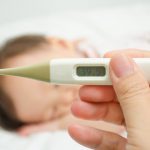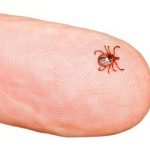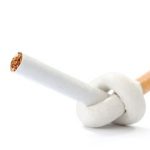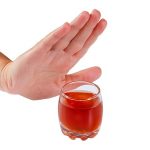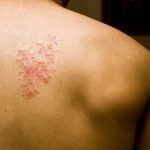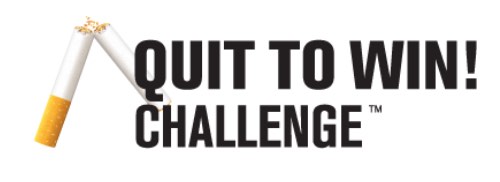Health Bulletins
Common topics
FEVER IN CHILDREN
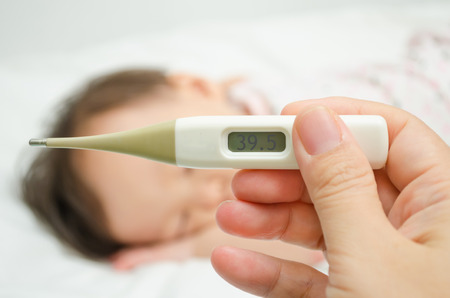
WHAT IS FEVER?
Fever allows fighting against viruses and bacteria, it is a defense mechanism of the body. The degree of fever is not an indication of the seriousness of the illness.
A child has fever when the body temperature is equal or above:
- Rectal: 38.5 C or 101.5 F
- Oral: 38.0 C or 100.4 F
- Axillary: 37.5 C or 99.0 F
- Tympanic: 38.0 C or 100.4 F
Preferred fever measurement method based on your child age:
- Less than 2 years: Rectally is first choice. Axillary is second choice.
- From 2 to 5 years: Rectally is first choice. Tympanic or axillary is second choice.
- Over 5 years: Orally or rectally is first choice. Timpanic or axillary is second choice.
WHAT TO DO WHEN A CHILD HAS FEVER?
To reduce the fever, you can give acetaminophen (for example : Tylenol, Tempra). When fever persists after an hour and your child is over 6 months old, you can give ibuprofen. It is important to respect recommended quantities and intervals between doses. Give medications using suppositories if your child is vomiting or if it is difficult for him or her to take the medication.
Avoid giving aspirin to children under 18 years old.
Give your child something to drink regularly and make sure he/she remains well hydrated. Dress your child lightly and keep him/her in a well aerated room with a temperature at around 20 C. Finally, encourage him/her to rest.
Acetaminophen
- 15 mg/kg/day every 4 hours
- Maximum of 75 mg/kg/day
Ibuprofen
- 10 mg/kg/dose every 6 hours
- Maximum of 40 mg/kg/day
WHEN TO SEE A DOCTOR?
- If your child is under 3 months old: It is recommended to see a doctor as soon your child has a fever.
- If your child is under 2 years old: It is recommended to see a doctor if your child still has a fever after 48 hrs when there is no other symptoms.
- If your child is over 2 years old: You can wait 24 to 48 hrs before seeing a doctor if there is no other symptoms.
You should also see a doctor if:
- Your child general condition deteriorates
- If your child complain about pain or neck stiffness
- If your child is difficult to wake up
- If your child is experiencing shortness of breath
- If the fever persists over 3 days after seeing a doctor
See the brochure ‘La fièvre’ from CHU Saint-Justine at the following link:
LYME DISEASE
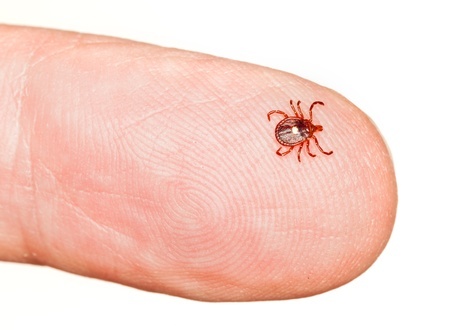
Lyme disease: a problem more and more common in Monteregie!
Lyme disease is caused by a bacteria named Borrelia Burgdorferi transmitted to humans through the bite of infected black-legged ticks.
The Lyme disease is characterised by the appearance of a red plaque on the skin looking like a target, in the area of the bite, which size progressively increases. Other symptoms might arise such as joint or muscular pain, headaches and sometimes fever. In the following weeks or months, complications affecting the hearth, the nervous system or joints might also arise.
Ticks mostly live in forested areas or tall grass. They usually need to remain on their host during two to five days to complete their meal. The risk of bacteria transmission increase with contact time after the bite (usually the risk is higher after 48 hrs of attachment to the host). It is therefore important to remove the tick from the skin as soon as possible, taking care not to crush it during the extraction.
HOW TO PROTECT YOURSELF FROM TICK BITES:
- Wear long and light-colored clothing when going for a walk in the woods or tall grass
- Tuck pant legs into your socks
- Use an insect repellent (DEET)
- Examine your whole body (as well as your pet) after a walk in the forest
When symptoms similar to the Lyme disease appear, see your doctor.
SMOKING CESSATION
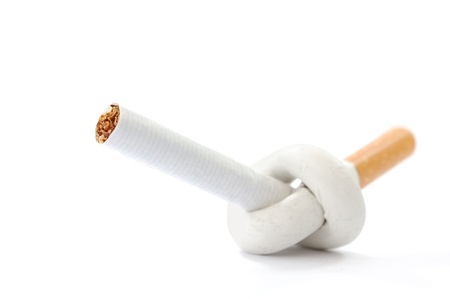
ARE YOU THINKING TO QUIT SMOKING?
Congratulations! You made the first step!
One smoker out of two will die prematurely from diseases associated with smoking and a large majority suffer from diseases and important disabilities related to this dependence.
Do not hesitate to talk to your doctor about your desire to quit smoking. Your doctor will be happy to help and support you throughout this process. Doctors can provide you a great number of tips and advise you on pharmacological aids if required (stamps, gums, tablets, Zyban, Champix)
A GOOD PREPARATION: THE KEY OF SUCCESS!
When you have decided to quit smoking, it is important to set your cessation date. This date will be the first day without a cigarette. Select a day without stress that will allow you to concentrate all your energy on this new challenge.
Rewrite the reasons you want to stop smoking and read them over regularly, especially when the temptation to smoke comes back.
Pay attention to withdrawal symptoms to better identify them and prepare yourself: powerful craving for smoking, dizziness, concentration problems, trembling, capricious appetite, irritable state, difficulty sleeping, anxiety, headaches, digestive problems.
Be patient! Withdrawal effects will last a lot less longer than the negative effects of smoking on your health!
SIMPLE LITTLE TRICKS
- Identify smoking urge triggers (alcohol drinks, high stress) and learn to recognize them in order to develop new habits when they show up.
- Keep in mind the advantages of quitting tobacco smoking compared to the disadvantages
- Get rid of your cigarettes, lighters and ashtrays
- Stay active to limit weight gain sometimes associated to quitting smoking and avoid replacing nicotine dependence by overconsumption of food
- Avoid people that smoke and places where cigarette is allowed
- Calculate savings you make since you stopped buying cigarettes
- Advice your friends and family of your objectives to obtain their support!
- Establish a timetable starting from the cessation date and reward yourself!
OTHER USEFUL RESOURCES TO STOP SMOKING:
ALCOHOL CONSUMPTION
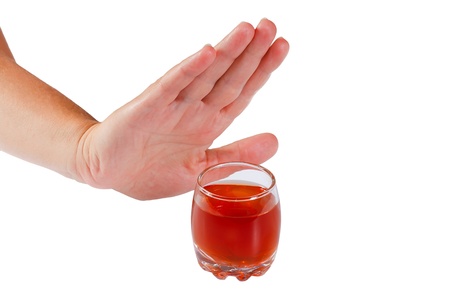
ARE YOU CONCERNED ABOUT YOUR ALCOHOL CONSUMPTION?
To better evaluate your situation, answer the following questions:
- Have you ever felt guilty about your alcohol consumption?
- Have you felt the need to lower down your alcohol consumption?
- Did you need to drink alcohol in the morning to feel great?
- Does anyone around you ever made comments about your alcohol consumption?
If you answered YES to at least 2 questions, your alcohol consumption may be problematic. Talk about it to your doctor.
To learn about official recommendations in terms of consumption and for many other useful information, see the following site from Éduc’alcool :
SHINGLES
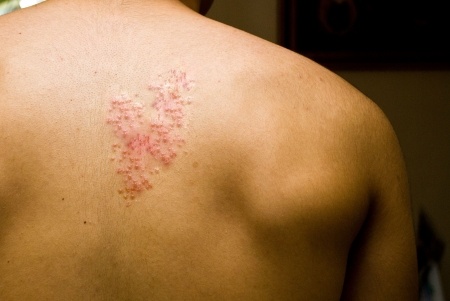
Shingles are triggered by the reactivation of the varicella-zoster virus in our body. Anyone who had chickenpox (also known as «varicella») or was immunized against chickenpox is at risk to get the shingles later in life. Indeed, the virus becomes fall asleep in nerve root and can be awaken at any time. We know that fatigue, physical or psychological stress, infections and conditions that reduce the immune system increase the risk to wake up the virus.
Shingle can be recognized by a pain, often looking like a burn or itching, affecting a body region. After a few days of pain, small pimples appear at the pain site. These pimples are vesicles or, in other words, tiny clustered water-filled bumps.
If you are suspecting shingles, it is important to quickly go see your doctor. Medication must effectively be given less than 72 hours following the appearance of vesicles to reduce long term pain risk.
If you already had the shingles, you should know that you are at risk to do another episode. The good news is that future episode are always in the same body region and as a result, you should be able recognize the symptoms.

